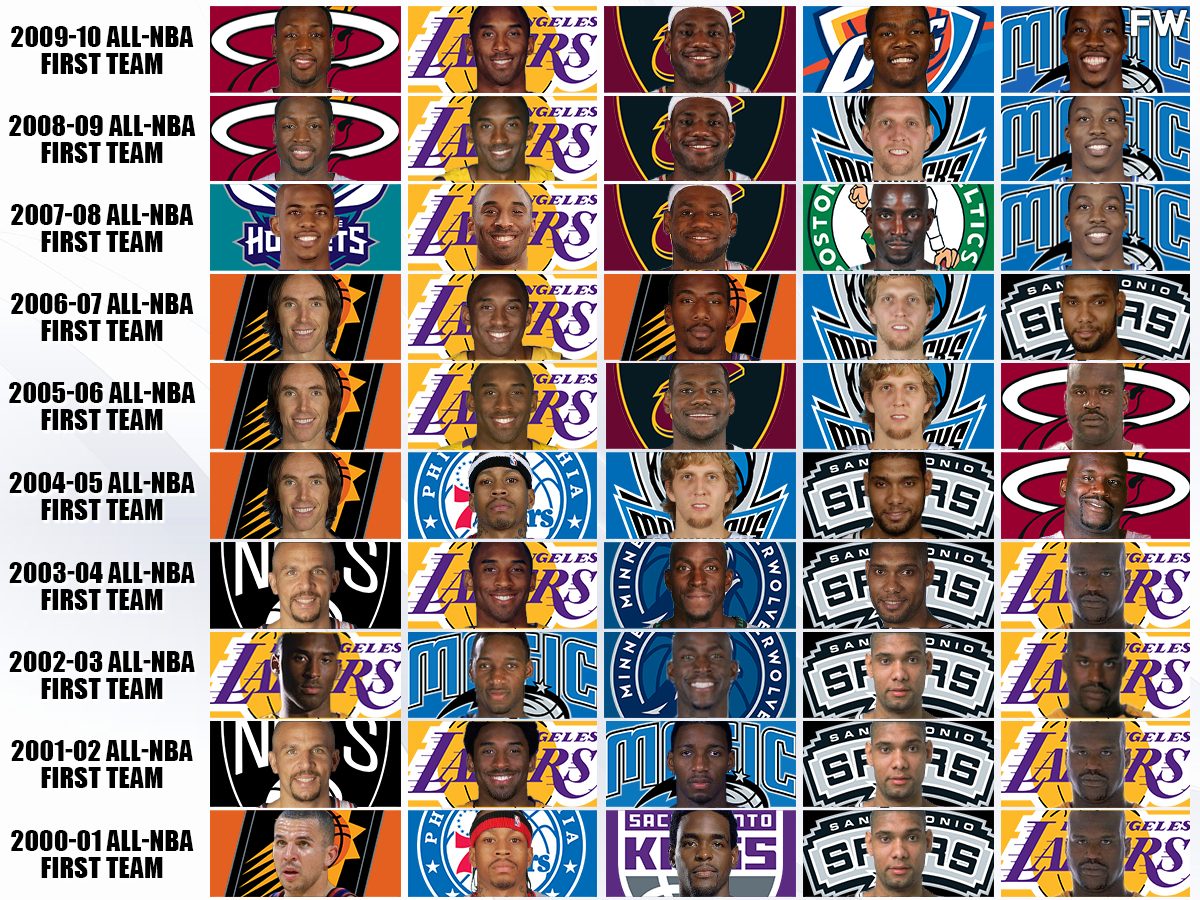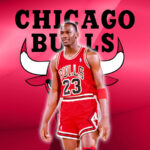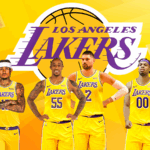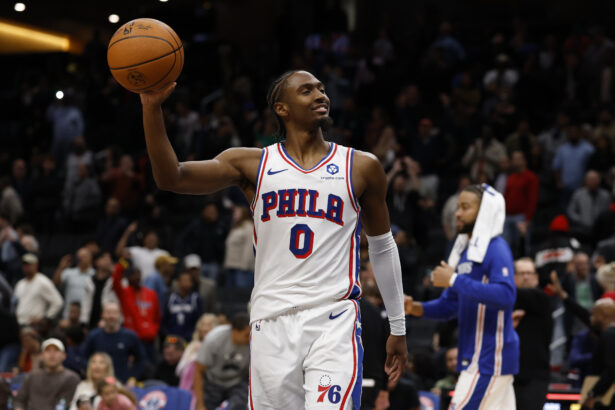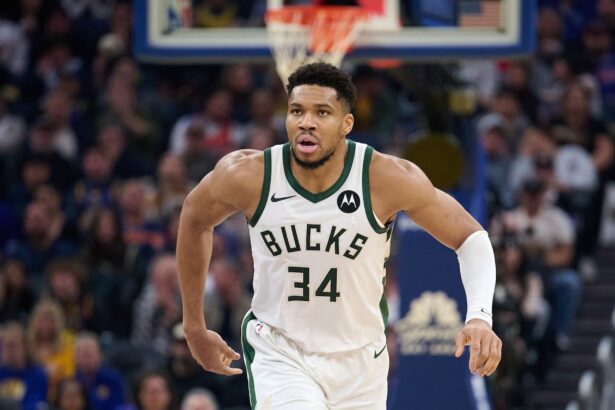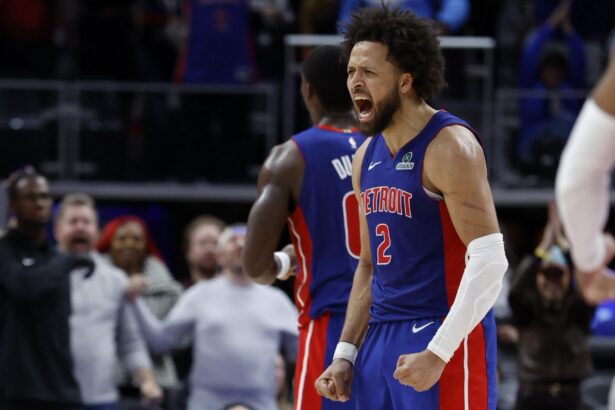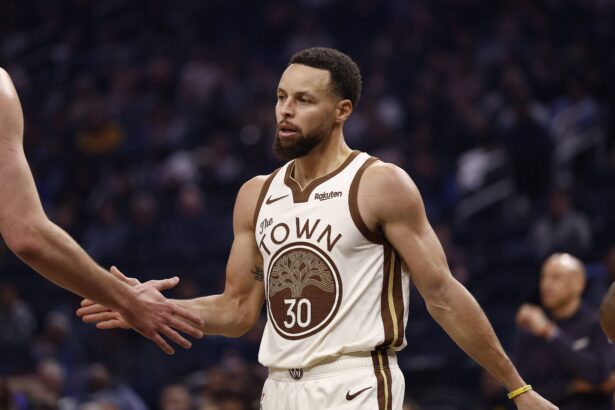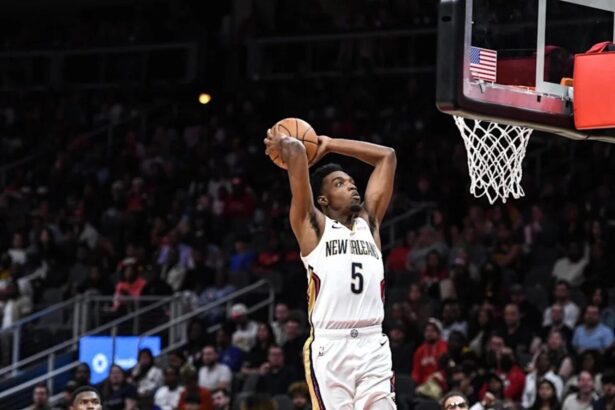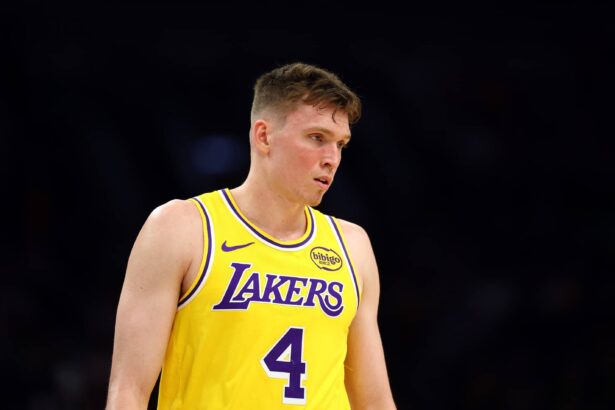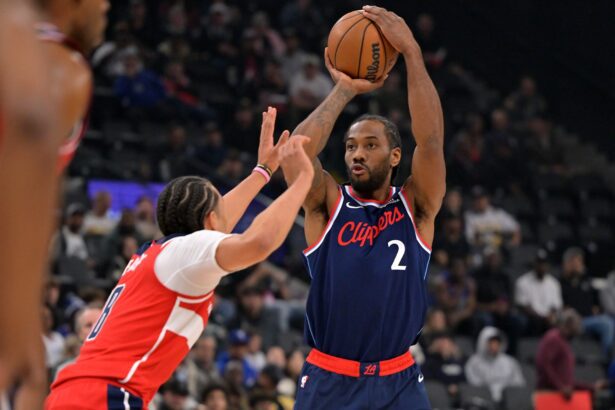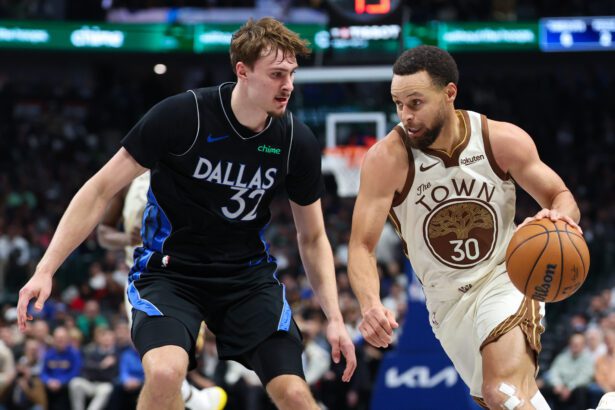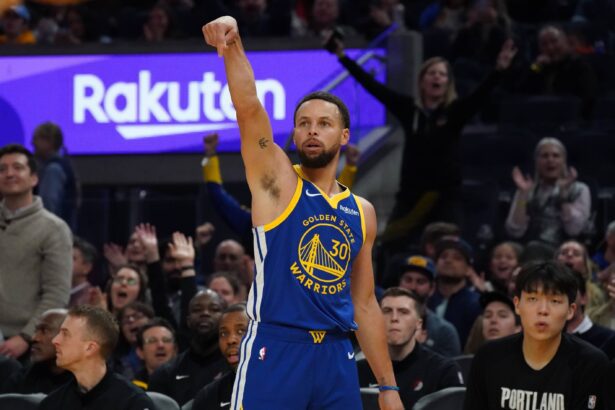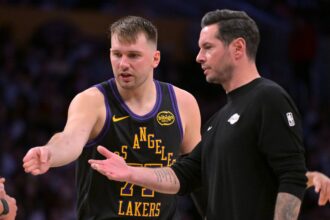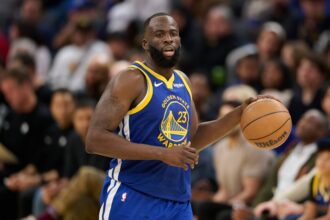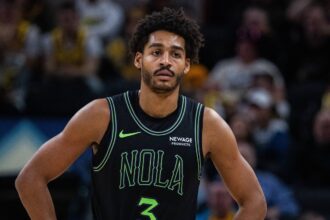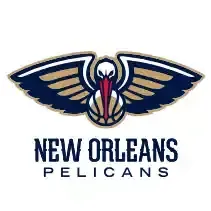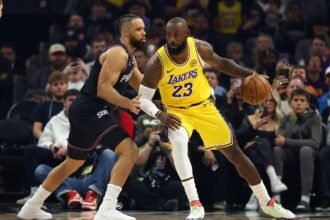Making an All-NBA Team is not easy because only 15 players per season have a chance at doing so. It requires individual performances, winning, and dominance on the court on a consistent basis to be recognized as an All-NBA performer. We have seen how legendary the 2001 All-NBA Team was, along with the 2003 All-NBA Team. Certain stars taking over the NBA, including Kobe Bryant, Shaquille O’Neal, Tim Duncan, and eventually LeBron James, all made more than a few All-NBA First Team Selections across the decade.
But we also witnessed the continuing rise of other top stars in the game who impacted the game in their own way. It is amazing to see how players from the All-NBA Second and Third Team have arguments for making the First Team because their talent and value to their teams was truly exceptional. But there can only be five players that can make the All-NBA First Team, and we will go through the decade between 2001 and 2010 to get an indication of the league’s top stars. Of course, some top players also came into the league between 2001 and 2010, so this decade was filled with talent. Without further ado, here are the All-NBA First Teams from the 2001 NBA season until the 2010 NBA season.
2000-01 All-NBA First Team
Jason Kidd, Allen Iverson, Chris Webber, Tim Duncan, Shaquille O’Neal
With Kobe Bryant making the All-NBA Second Team for the first time in this decade, the All-NBA First Team had guards Jason Kidd and Allen Iverson control the ball. Kidd is one of the best triple-double threats in NBA history from the guard spot because he had the size and strength to score, pass, rebound, and defend. Kidd posted 16.9 PPG, 6.4 RPG, and 9.8 APG as a member of the Phoenix Suns.
Allen Iverson, for the Philadelphia 76ers, averaged 31.1 PPG and won the Most Valuable Player after carrying the 76ers to the best record in the Eastern Conference. Iverson only had Dikembe Mutombo (RPG leader) to lean on as an All-Star teammate, and thanks to his scoring, Philly made the NBA Finals. In the frontcourt, Chris Webber, Tim Duncan, and stalwart Shaquille O’Neal made up the remaining three spots.
Webber, a versatile power forward who can score, pass, and rebound, posted 27.1 PPG, 11.1 RPG, and 4.2 APG for the Sacramento Kings. The Kings finished with a very solid 55-27 record, which was third in the West, and Webber was the catalyst. Tim Duncan, a name that will appear more than a few times in this article, averaged 22.2 PPG and 12.2 RPG for the San Antonio Spurs. Finally, the best center in the decade, Shaq averaged 28.7 PPG while leading the NBA in win shares for the Lakers.
2001-02 All-NBA First Team
Jason Kidd, Kobe Bryant, Tracy McGrady, Tim Duncan, Shaquille O’Neal
The 2002 season was the start of Kobe Bryant’s reign as the best player in the decade alongside Shaquille O’Neal. Jason Kidd was the point guard who made the First Team, posting 14.7 PPG, 7.3 RPG, and 9.9 APG as a member of the New Jersey Nets. Kidd was sensational in his first season, leading the Nets to an East-leading 52-30 record. Similarly, Kobe Bryant was spectacular by posting 25.2 PPG, 5.5 RPG, and 5.5 APG for the Lakers, who obviously won the NBA title at the end of the year.
Tracy McGrady, due to his unbelievable scoring prowess, made the All-NBA First Team for the first time after averaging 25.6 PPG, 7.9 RPG, and 5.3 APG as a member of the Orlando Magic. T-Mac was slowly becoming one of the top guards in the NBA, challenging Kobe Bryant in that regard. At the power forward spot was none other than Tim Duncan, who led the San Antonio Spurs to a very solid 58-24 record, which was second in the Western Conference. Duncan also captured the MVP award during the year.
Finally, Shaquille O’Neal continued his dominance by averaging 27.2 PPG, 10.7 RPG, 3.0 APG, and 2.0 BPG on 57.9% shooting from the field. Shaq’s dominance in the paint was just too much for anybody to handle, as he went on to win his third straight Finals MVP award and NBA championship. During the regular season, O’Neal was at his best as usual, and his partnership with Kobe Bryant was dominant.
2002-03 All-NBA First Team
Kobe Bryant, Tracy McGrady, Kevin Garnett, Tim Duncan, Shaquille O’Neal
Kobe Bryant and Tracy McGrady once again made the All-NBA First Team, as both shooting guards were spectacular on offense. Bryant posted 30.0 PPG, 6.9 RPG, 5.9 APG, and 0.8 BPG as a member of the Lakers and started staking his claim as the best payer on the team. Unsurprisingly, beef rumors between Bryant and Shaquille O’Neal started becoming prevalent as neither player wanted a backseat role.
Tracy McGrady averaged 32.1 PPG, 6.5 RPG, 5.5 APG, and 0.8 BPG as a member of the Orlando Magic in the best season of his career. T-Mac was rising over defenders, shooting over people, and attacking the basket with incredible athleticism. McGrady also led all players in scoring over the year. At the first forward spot was Kevin Garnett, the superstar for the Minnesota Timberwolves, who averaged 23.0 PPG, 13.4 RPG, 6.0 APG, and 1.6 BPG.
At the second forward spot was Tim Duncan, the league’s MVP once again. The Big Fundamental posted 23.3 PPG, 12.9 RPG, and 3.9 APG for the Spurs and guided them to the best record in the NBA and eventually won the NBA championship. In an accolade-filled season, Duncan was the best player in the NBA at that point. Of course, Shaq continued his dominance at center by posting 27.5 PPG and 11.1 RPG over 67 games played.
2003-04 All-NBA First Team
Jason Kidd, Kobe Bryant, Kevin Garnett, Tim Duncan, Shaquille O’Neal
Jason Kidd returned to the All-NBA First Team to join Kobe Bryant in the backcourt, while some familiar faces returned in the frontcourt. Kidd averaged 15.5 PPG, 6.4 RPG, and 9.2 APG for the New Jersey Nets after the team finished with a solid 47-35 record and eventually made the Eastern Conference Semifinals. Kobe Bryant, arguably the most talented player in the world alongside Shaquille O’Neal, posted 24.0 PPG, 5.5 RPG, and 5.1 APG for the Lakers.
Kevin Garnett was back in the First Team after winning the league’s MVP award by averaging 24.2 PPG, 13.9 RPG, 5.0 APG, and 2.2 BPG. The Big Ticket was the most dominant player in the NBA and certainly the most valuable, guiding the Timberwolves to the best record in the West at 58-24. Tim Duncan, the best player on the second seed in the West, also made the All-NBA First Team yet again.
Duncan averaged 22.3 PPG, 12.4 RPG, and 2.7 BPG for the San Antonio Spurs while nailing 50.1% shooting from the field. Shaquille O’Neal would make the First Team again, posting 21.5 PPG, 11.5 RPG, and 2.5 BPG for the Lakers despite the ongoing drama within the team. The Lakers made the NBA Finals due to their incredible talent, but their chemistry was not great, and the team fell to the Detroit Pistons in one of the biggest upsets in NBA history.
2004-05 All-NBA First Team
Steve Nash, Allen Iverson, Dirk Nowitzki, Tim Duncan, Shaquille O’Neal
No Kobe Bryant in the 2005 First Team, which opened up the space for Steve Nash or Allen Iverson. Nash was the architect for the talented Phoenix Suns, that could score with anyone, and Nash eventually won the MVP award at the end of the year. The Canadian star posted 15.5 PPG and 11.5 APG while leading Phoenix to a 62-20 record, which topped the West. Allen Iverson was back in the First Team, averaging 30.7 PPG and 7.9 APG while once again carrying the 76ers all year long.
Dirk Nowitzki would also start his reign in the First Team as a member of the Dallas Mavericks, posting 26.1 PPG, 9.7 RPG, and 1.5 BPG while showcasing his exciting offensive skill set. Armed with a one-legged fadeaway and one of the sweetest jumpers in NBA history, Dirk was one of the best players all year long. Guess who was at the other forward spot? Tim Duncan once again made the First Team by guiding the San Antonio Spurs to a 59-23 record, which was good for second in the West.
Shaquille O’Neal started at center for the First Team yet again, averaging 22.9 PPG, 10.4 RPG, 2.7 APG, and 2.3 BPG for the Miami Heat in his first season with the franchise. The big man’s numbers were down, but his size and impact were there as Miami started building a championship team with youngster Dwyane Wade starting to come into his own. The Heat finished with a 59-23 record, which topped the East, and many felt Shaq deserved the league MVP over Steve Nash.
2005-06 All-NBA First Team
Steve Nash, Kobe Bryant, LeBron James, Dirk Nowitzki, Shaquille O’Neal
Steve Nash, the back-to-back MVP, made the All-NBA First Team by having a spectacular season averaging 18.8 PPG, 4.2 RPG, and 10.5 APG for the Phoenix Suns. Nash was spectacular shooting the ball and also was a dish master, setting up his teammates well every time down the court. Alongside him is the returning Kobe Bryant, who probably felt he deserved the league MVP over Nash.
Kobe posted 35.4 PPG, 5.3 RPG, and 4.5 APG for the Los Angeles Lakers and was absolutely dominant as a one-man show. Bryant led all players in PPG during the year and led the Lakers into the playoffs with a 45-37 record despite having little to no help. Not to mention, Bryant’s 81-point showing essentially confirmed his place on the All-NBA First Team. A new face would also join the First Team, and his name is LeBron James.
In his third NBA season, LeBron James averaged 31.4 PPG and 7.0 RPG while guiding the Cleveland Cavaliers to the 3rd seed in the Eastern Conference with a 50-32 record. The King was not quite the best player in the league, but he was building his case slowly. Dirk Nowitzki returns with an average of 26.6 PPG and 9.0 RPG, while Shaq would make his final First Team over this decade after he posted 20.0 PPG and 9.2 RPG while winning the NBA championship at the end of the year.
2006-07 All-NBA First Team
Steve Nash, Kobe Bryant, Amar’e Stoudemire, Dirk Nowitzki, Tim Duncan
Steve Nash and Kobe Bryant were the stalwarts of the All-NBA First Team in 2007, the former leading all players in assists and the latter leading all players in scoring. Nash did not win his third MVP award despite leading the Phoenix Suns to a 61-21 record, and Bryant posted 31.6 PPG, 5.7 RPG, and 5.4 APG for the Lakers, who were once again devoid of any talent. This would be the last time Nash and Bryant would share a backcourt together in the First Team.
Amar’e Stoudemire was the newest inclusion of the decade, posting 20.4 PPG, 9.6 RPG, and 1.3 BPG as a member of the Phoenix Suns. Nash and Stoudemire were deadly on the court together, as their pick-n-roll destroyed defenses. Nash was the architect, but Stoudemire was the finisher for a side that made it to the second round of the postseason. At the other frontcourt spots, Dirk Nowitzki and Tim Duncan completed the starting lineup.
Dirk Nowitzki won the league MVP after posting 24.6 PPG, 8.9 RPG, 3.4 APG, and 0.8 BPG for the Dallas Mavericks, which had the best record in the NBA at 67-15. Dirk was spectacular, leading the players every night, averaging 48.0% from the field. Unfortunately, the Mavericks would lose in the first round of the playoffs to the “We Believe” Golden State Warriors. Tim Duncan also made the First Team averaging 20.0 PPG and 10.6 RPG for the 58-24 San Antonio Spurs.
2007-08 All-NBA First Team
Chris Paul, Kobe Bryant, LeBron James, Kevin Garnett, Dwight Howard
Replacing Steve Nash is Chris Paul, one of the most exciting point guards of his generation. Paul did not wow with athleticism as he stands only 6’0” and weighs 175 lbs, but he dominated both ends of the floor at his position. CP3 posted 21.1 PPG, 4.0 RPG, and 11.6 APG for the New Orleans Hornets, which finished with a 56-26 record. Alongside him is none other than Kobe Bryant.
Bryant finally broke through to win his first MVP award, averaging 28.3 PPG, 6.3 RPG, and 5.4 APG while getting some help in the form of Pau Gasol and Andrew Bynum. The Lakers’ acquisition of Pau Gasol gave Bryant the juice he needed to push all season, finishing with the best record in the West and making it to the NBA Finals in a losing effort to the Boston Celtics. LeBron James’ time would come in 2008, making the First Team and not letting up.
James averaged 30.0 PPG, 7.9 RPG, and 7.2 APG for the Cleveland Cavaliers, and the media promotion of The King meets The Black Mamba in the NBA Finals never materialized. We might have been robbed of one of the best Finals showdowns ever, but the Boston Celtics certainly belonged in the Finals thanks to Defensive Player of the Year winner Kevin Garnett and Boston’s Big three. Garnett made the First Team alongside Dwight Howard, the next center to take the throne after Shaquille O’Neal after he posted 20.7 PPG and 14.2 RPG for the Orlando Magic.
2008-09 All-NBA First Team
Dwyane Wade, Kobe Bryant, LeBron James, Dirk Nowitzki, Dwight Howard
The 2009 season featured Dwyane Wade and Kobe Bryant in the backcourt, easily the two best guards in the NBA. Wade posted 30.2 PPG, 5.0 RPG, 7.5 APG, and 1.3 BPG while leading the NBA in scoring and having an all-time great season for an individual on both ends of the floor. Alongside him was Kobe Bryant, who would win his first championship at the end of the year after posting 26.8 PPG in the regular season.
LeBron James assumed his position at small forward, posting 28.4 PPG, 7.6 RPG, and 7.2 APG as a member of the Cleveland Cavaliers. The King was sensational on the court as he carried a very heavy load and led the team to a very solid 66-16 record, which ranked first in the NBA. James knew how to make his teammates better, and there were high expectations of James finally meeting Kobe Bryant in the NBA Finals again. But once again, James failed to make the Finals with the Cavaliers.
Dirk Nowitzki and Dwight Howard formed the remaining frontcourt partners in the All-NBA First Team. The big German averaged 25.9 PPG and 8.4 RPG in the regular season, guiding the Dallas Mavericks to a 50-32 record. Dwight was his usual dominant self down low as the best center in the NBA, posting 20.6 PPG, 13.8 RPG, and 2.9 BPG. A rim enforcer and an elite pick-n-roll lob partner, Howard was exceptional all year long and eventually led the Orlando Magic to the NBA Finals against Kobe Bryant and the Los Angeles Lakers in a losing effort.
2009-10 All-NBA First Team
Dwyane Wade, Kobe Bryant, LeBron James, Kevin Durant, Dwight Howard
Wade and Bryant were once again the duo in the backcourt for the All-NBA First Team, and both clearly deserved it. Wade averaged 26.6 PPG, 4.8 RPG, and 6.5 APG for the Miami Heat, guiding them to a very solid 47-35 record despite the roster lacking much star talent. The talented slasher was exceptional at blocking shots as well, posting 1.1 BPG as a perimeter lockdown defender. Luckily for Wade, LeBron James and Chris Bosh would be on their way to Miami the following season.
Kobe Bryant won his second straight championship and 5th overall at the end of the 2010 season, posting 27.0 PPG and 5.4 RPG in the regular season. The Black Mamba was happy with cruising to about 75-80% of his ability in the regular season, turning it on in the playoffs, and taking care of business in the NBA Finals. Again, LeBron James made the First Team by posting 29.7 PPG, 7.3 RPG, and 8.6 APG while guiding the Cleveland Cavaliers to a very solid 61-21 record, which topped the Eastern Conference.
Kevin Durant made his First Team introduction in the 2010 season, posting 30.1 PPG, 7.6 RPG, and 2.8 APG for the Oklahoma City Thunder. Durant led the NBA in scoring and was beginning to come into his own as one of the best players in the world. It was Kobe Bryant’s world right now, and LeBron James was right behind him. But Durant was starting to take over and would blossom into the 2010s decade. Dwight Howard was once again the best center in the NBA, averaging 18.3 PPG, 13.2 RPG, and 2.8 BPG. A shot-blocking center with elite athleticism, Howard’s time with the Magic would slowly be coming to an end at this point.
We sincerely appreciate and respect you as a reader of our site. It would help us a lot if you follow us on Google News because of the latest update.
Thanks for following us. We really appreciate your support.

